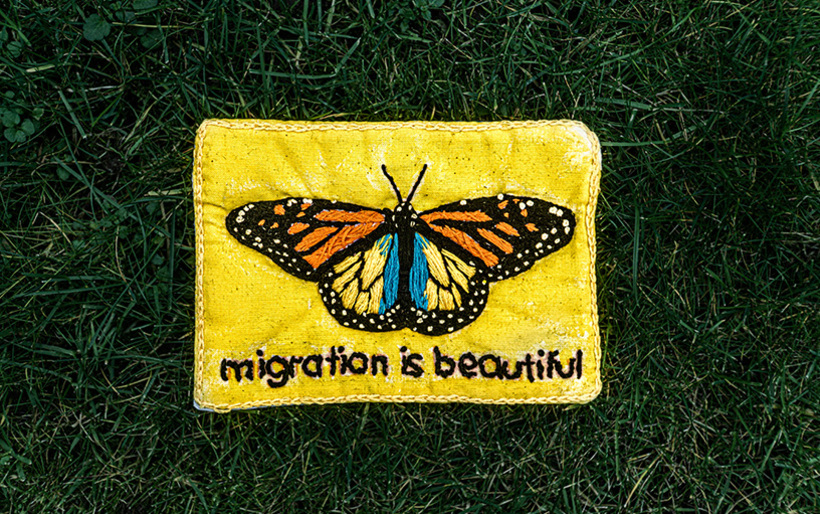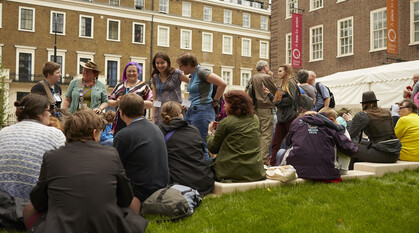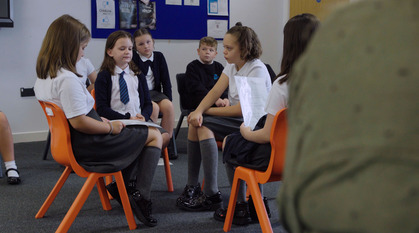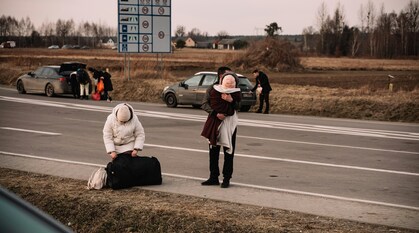Justice around the world: building back better for all
Tatiana Garavito explains why collective action during the pandemic demonstrates how we can build back better for all.

“To be hopeful in bad times is not just foolishly romantic. It is based on the fact that human history is a history not only of cruelty, but also of compassion, sacrifice, courage, kindness." ― Howard Zinn, A Power Governments Cannot Suppress, 2007
We all know that 2020 has been a challenging year, not only because of the Covid-19 pandemic, but beyond that, because we have a political and economic system that continues to put profit before people. 2020 exposed this reality again as thousands of people in the UK and around the world were taken early from our lives.
But this year we also learned that when we work together to build power, things don't have to be this way. Across the country, people formed thousands of mutual aid groups to support vulnerable people in our communities, we stopped charter flights with dozens of people in them who were going to be deported, and many in our communities mobilised and committed to standing up for black lives. These are some of the things we have done as social movements and communities to protect ourselves and each other this year. But what else is needed?
Doing things differently
Thousands of people from migrant and refugee communities have been denied their basic rights, even during this difficult time. We need to ensure that everyone has access to food, healthcare, income, job security, good and affordable housing and all that is needed to make sure we can enjoy our lives. At the moment, many people with no recourse to public funds do not receive any support; and many more are left at the mercy of exploitative landlords and employers.
This year, our movements and communities demonstrated that even with the regulations of the coronavirus lockdown, our communities can and will do things differently. Thousands of groups were set up to support undocumented people and others, through providing hardship funds, food banks and sophisticated freecycle networks. We need to continue organising locally and demanding that migrant and refugee communities are never blamed for the ills of an economic and political system that was designed to benefit very few.
We need to call for the UK government to protect and invest in our public services. Governments have done this before and it could be done again. The services that we all rely on must be properly funded, protected from privatisation and available to everyone, regardless of our immigration status or nationality.
The ideologies of supremacy of one group of people over another, and the mechanisms of an economy based on extraction will never bring about justice. This pandemic has shown the weakness of political choices of many governments in the Global North, with failures of long-term thinking and a decade of austerity measures.
Building a system that works for all
To build a system that works for all, there is absolutely no room for nationalism and nationalist thinking. This is why the UK and other countries in the Global North must acknowledge their historic and current responsibilities for driving the displacement of peoples and communities — and honour its obligation to them.
In the UK, that means ending the hostile environment of walls and fences, detention centres and prisons that are used against racialised, migrant, and refugee communities. It also means an end to the production and sales of arms and weapons that are used by this government to continue the control of resources and power across the world, and that cause immeasurable harm to our families in the Global South.
There are great organisations and movements starting to organise around clear policy demands that can achieve justice for communities around the world. Initiatives like the Global Green New Deal, the Global Tapestry of Alternatives, Progressive International or our green economy work, are some that aim to build our collective power and have an internationalist approach. Let us always try to connect the dots to build a better system that works for us all.


